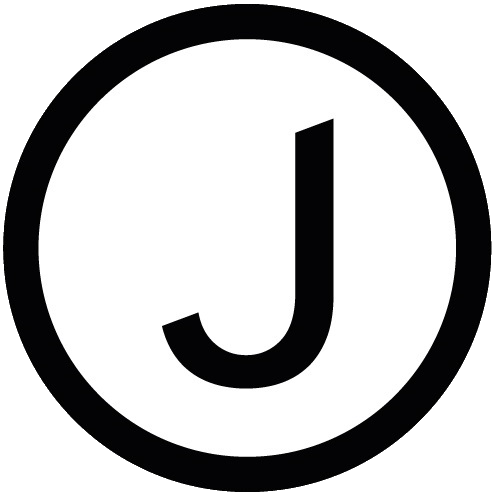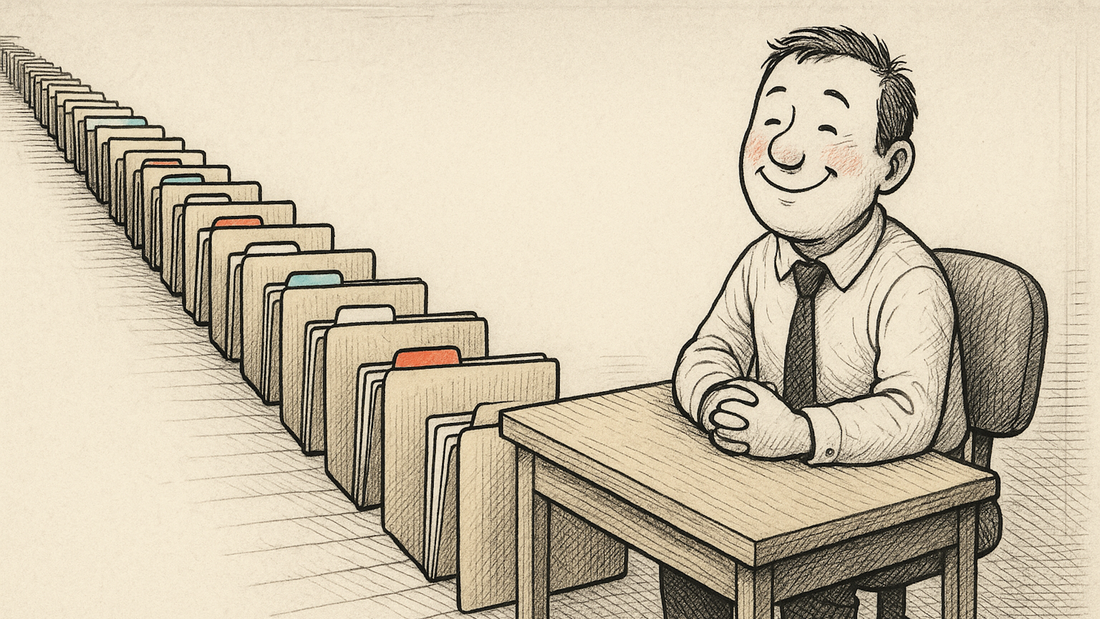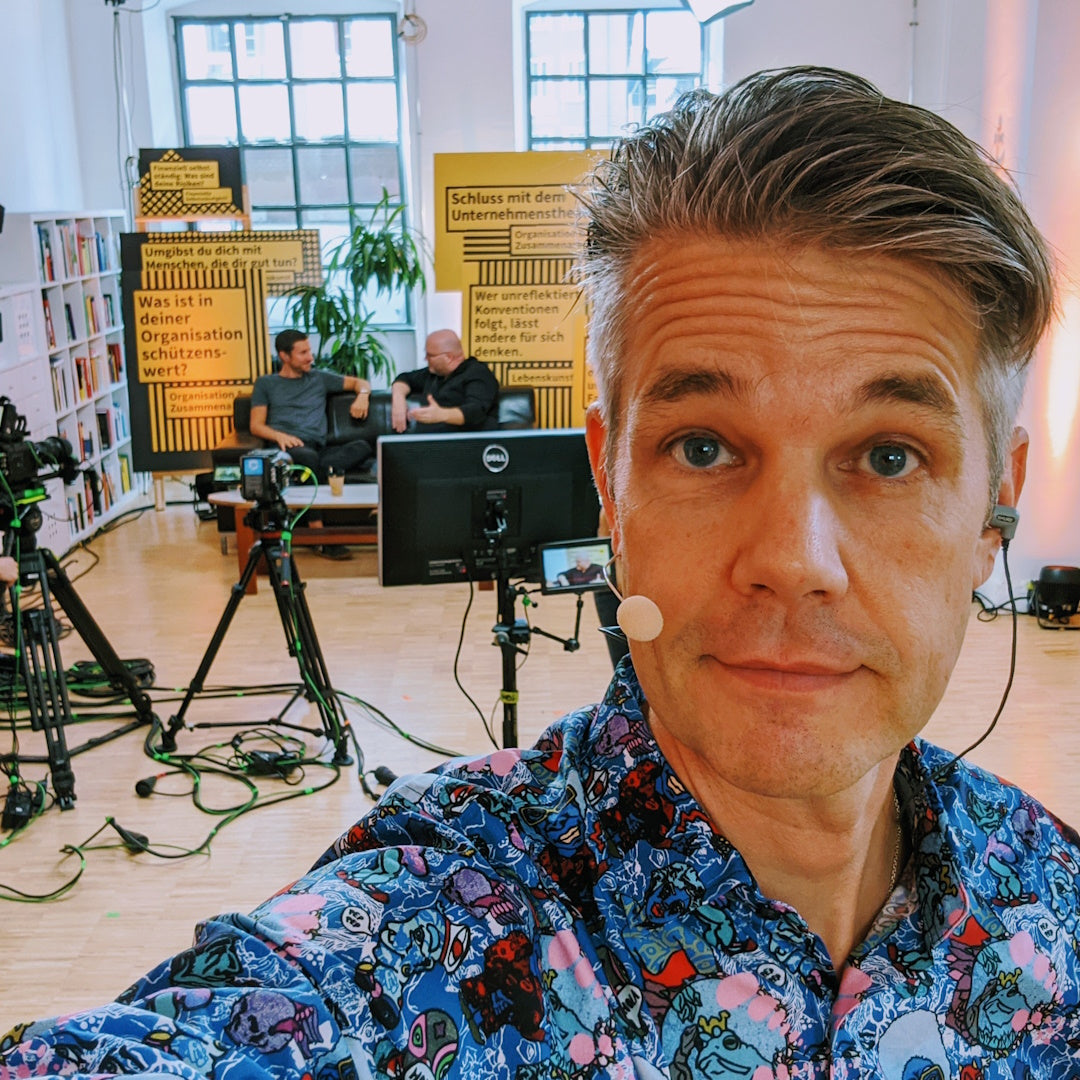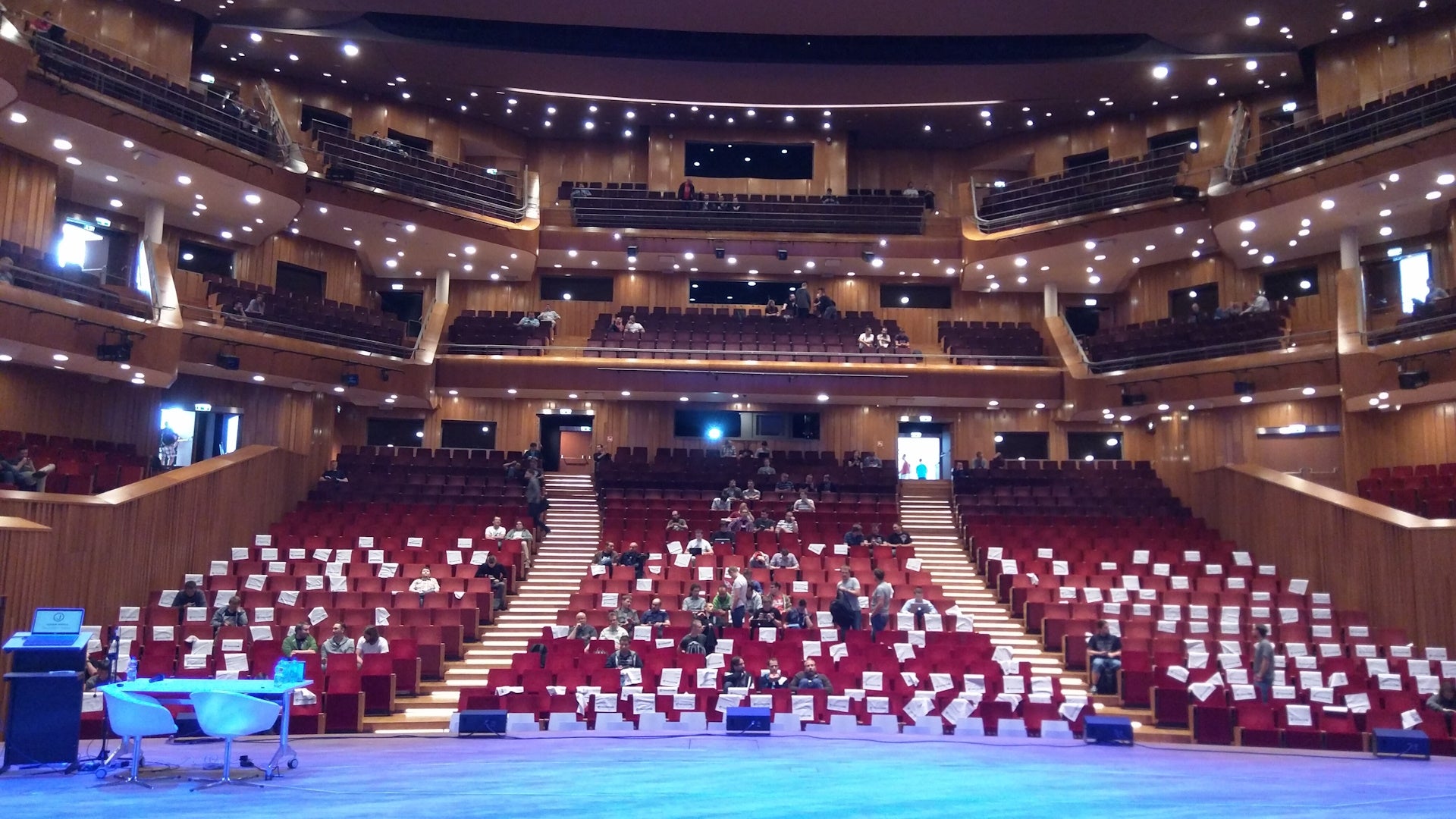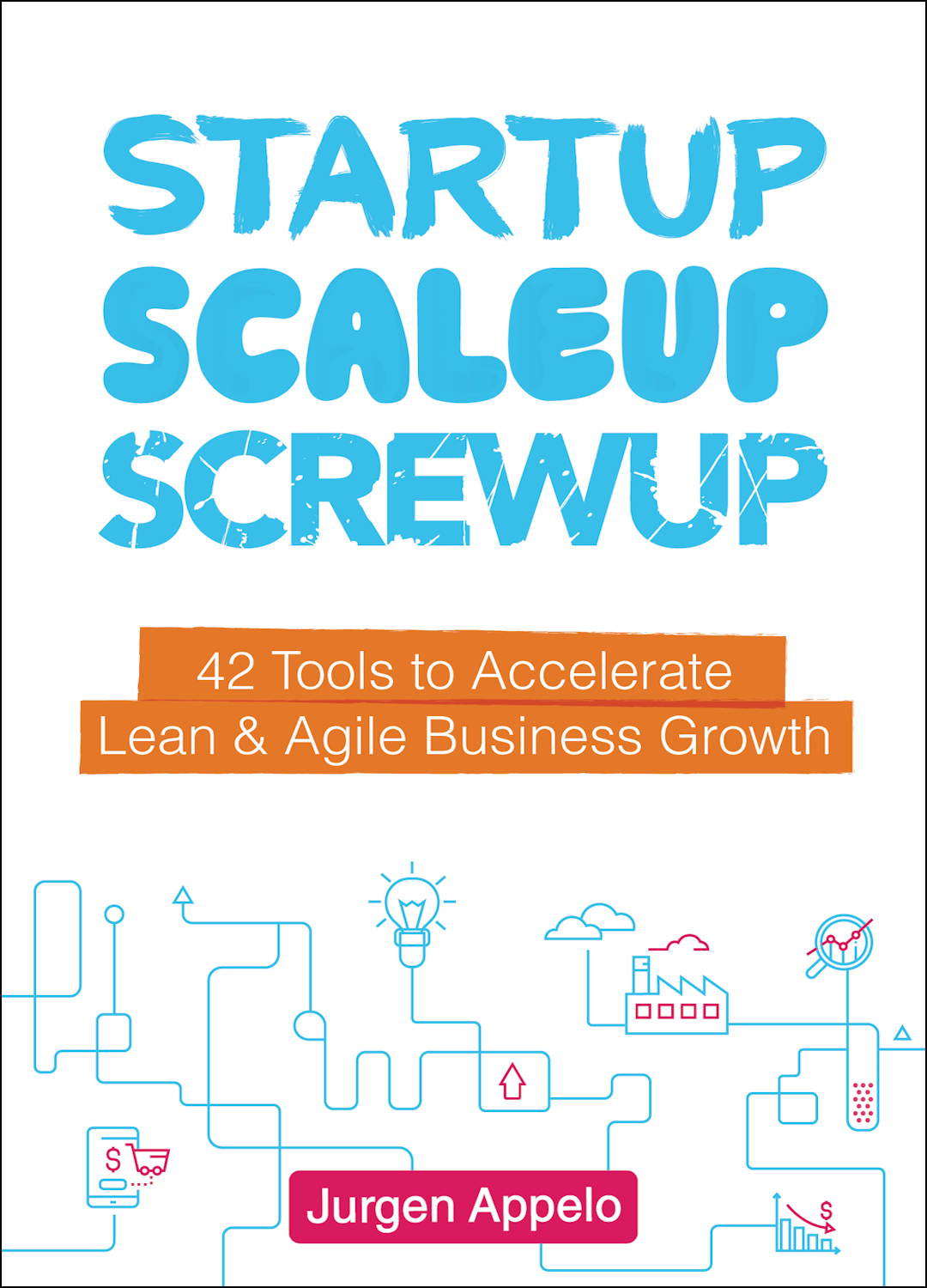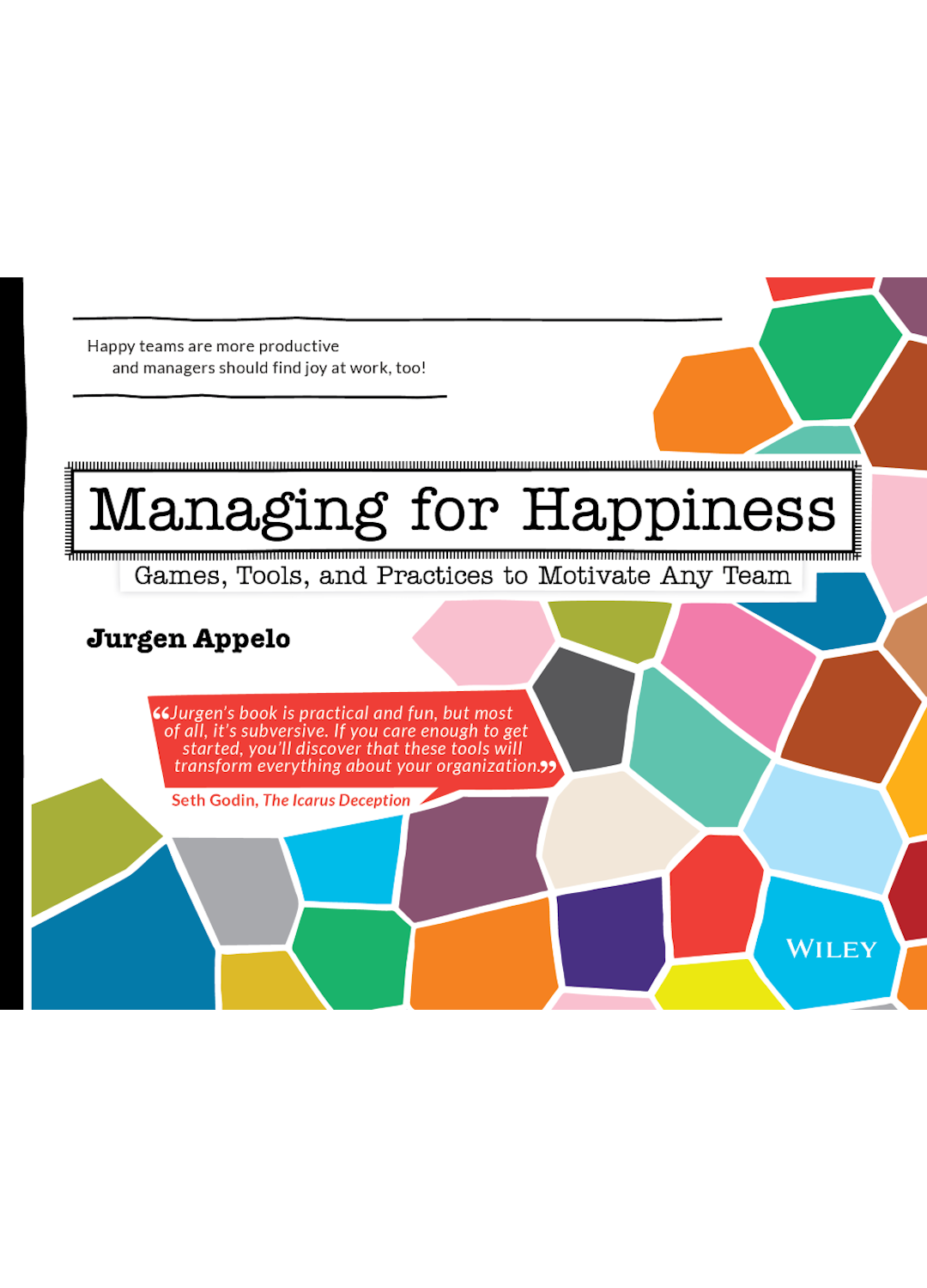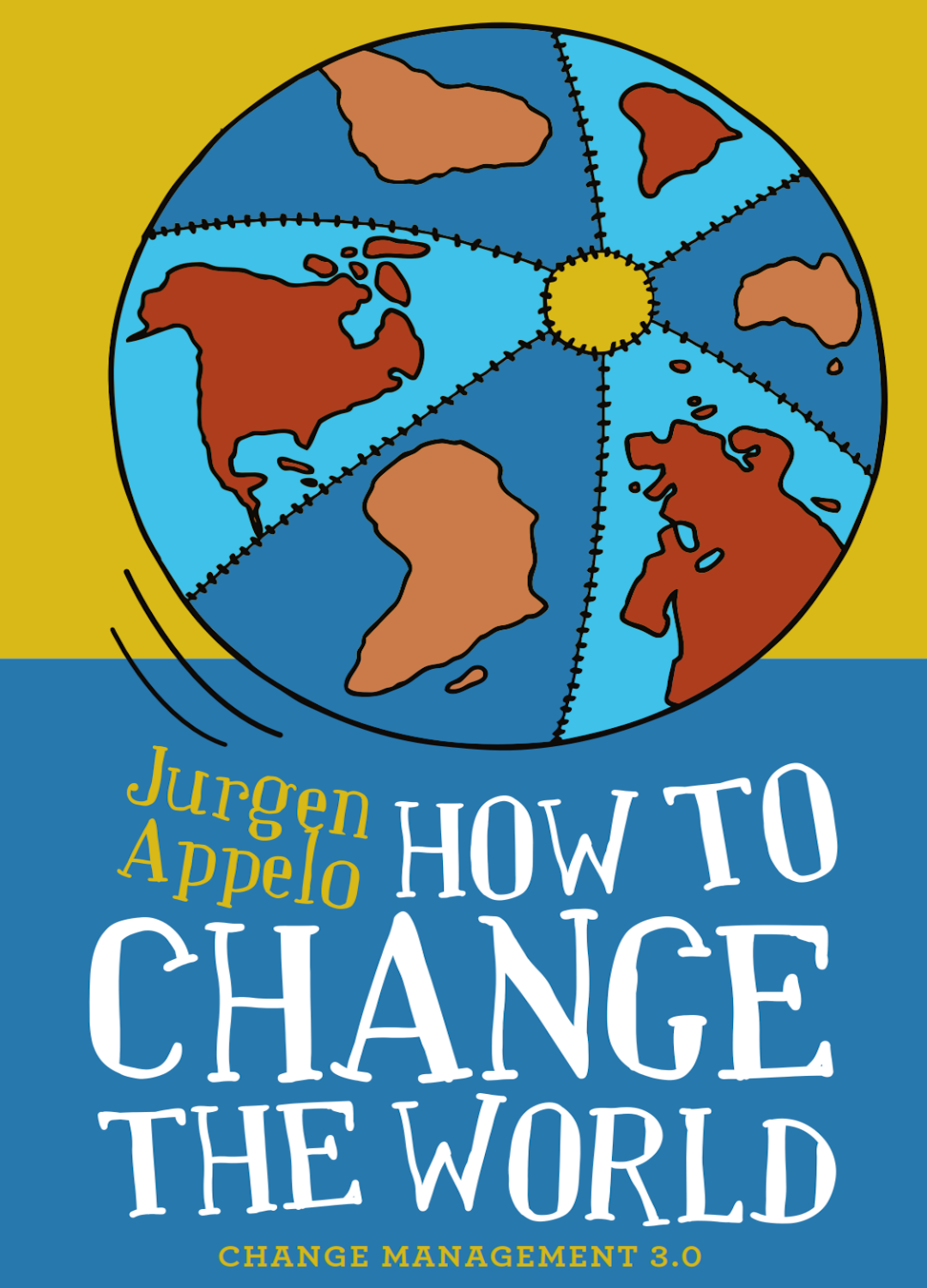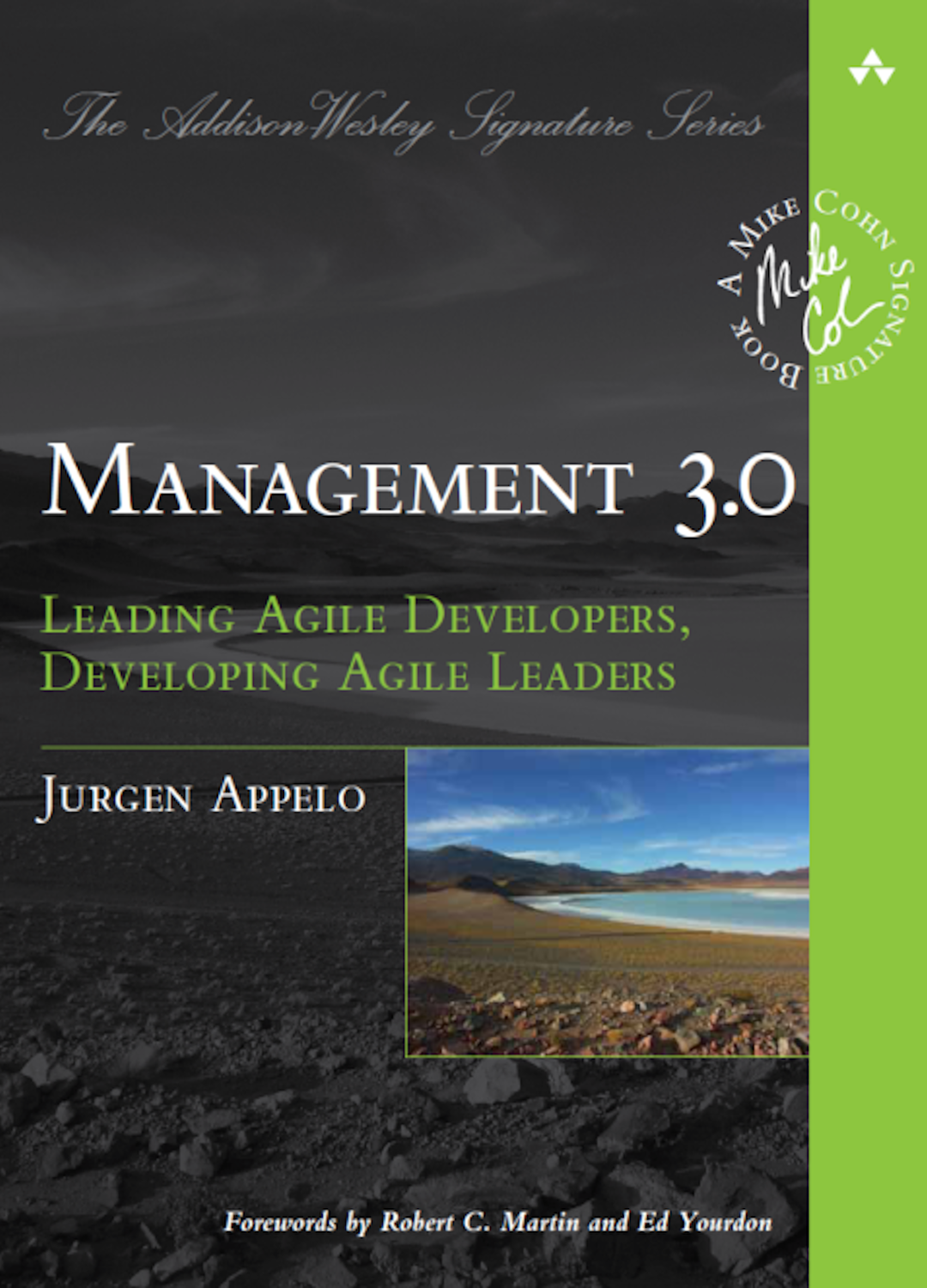Move over AI! Repetitive, mundane work can be surprisingly addictive and mentally rewarding.
I manually cleaned up 50,000 records and I couldn't have been happier.
I had this boring, long-running task I was working on first thing each morning: steadily cleaning up 49,335 contact records, slowly turning the mess that was my Google Contacts list into a pristine homebrew CRM, clean and fully automated. I was fixing errors, removing duplicates, and prettifying the data. It was the first thing I did each morning: music on, coffee on the side, click, click, next, click, click, next, click, click, next … But I enjoyed the stupid work and the mind-numbing slog. I secretly looked forward to it each day.
Now, the work is done. My data hub looks pristine and pretty.
I'm almost feeling sad. ☹️
It appears I stumbled onto something most people would rather die than admit: I actually enjoy mind-numbing busywork. Specifically, the Sisyphean task of wrestling 50,000 contact records into submission, transforming digital chaos into my own CRM paradise—one tedious entry at a time.
Most people would prescribe therapy. I'm relying on science.
My morning ritual of contact cleanup wasn't just productivity theater. It was a fascinating case study in how our brains trick us into finding meaning in the mundane. Let's dissect why I woke up genuinely excited to clean up a horrifying mess.
The Dopamine Slot Machine in My Inbox
Every time I fixed a broken record, deleted a duplicate, or properly categorized a contact, I was pulling the lever on a neurochemical jackpot. My brain released a small hit of dopamine—the same neurotransmitter that keeps people scrolling TikTok at 2 AM.
Psychologist Arie Kruglanski identified this as our Need for Cognitive Closure—the drive to eliminate ambiguity and impose order on chaos. My contact list was chaos incarnate: 50,000 fractured relationships, ghost entries, and the digital equivalent of business cards you find in your jeans pocket three years later.
But unlike most chaos in my life, this chaos was conquerable. Each corrected entry was a tiny victory lap, a small "I did that" in a world where most problems are unsolvable or take months to show results.
Morning Meditation, Hold the Enlightenment
What I had also accidentally created was ritualized cognitive offloading—meditation disguised as productivity.
When my brain is still warming up and not ready to tackle strategic problems or creative challenges, giving it something repetitive and predictable is like stretching before a workout. I feel productive without the pressure of "real work," whatever that means anymore.
This isn't procrastination. It's cognitive warm-up. I'm easing into the day with training wheels, creating a buffer between sleep-brain and work-brain that actually serves a function.
The repetitive nature creates what researchers call a "soft fascination"—just enough engagement to hold attention without demanding deep cognitive resources. It's the same principle behind why people find chopping vegetables or folding laundry oddly satisfying.
The Ultimate Dictatorship
Furthermore, in my contact list, I am the supreme commander. No competing priorities, no stakeholder management, no ethical dilemmas about AI replacing human workers. Just pure, beautiful administrative tyranny.
This taps into what psychologists call control restoration theory. When the outside world feels chaotic—economic uncertainty, technological disruption, the general sense that the world is on fire—we gravitate toward micro-environments where we have complete authority.
It's why people reorganized their entire homes during lockdown. It's why Marie Kondo built an empire around tidying up books and Pokémon cards. When you can't control the macro, you dominate the micro.
My morning CRM session was a daily reminder that I can, in fact, create order from chaos. At least in this one small corner of the digital universe that is 100% mine.
Flow State Through Data Entry
Mihaly Csikszentmihalyi's concept of Flow—that psychological state where time disappears and you're completely absorbed—doesn't require climbing mountains or composing symphonies. I found it in contact hygiene.
Flow has three requirements: clear goals, immediate feedback, and the right balance of skill and challenge. My early morning task hit all three:
-
Clear goals: Fix five hundred contacts per session
-
Immediate feedback: Watch duplicates disappear, see the list get cleaner
-
Skill-challenge balance: Complex enough to stay engaged, simple enough to avoid frustration
Most people chase flow through hobbies or creative work. I hacked it through database maintenance. There's something both brilliant and slightly concerning about that.
Digital Identity Architecture
I was not just cleaning up records—I was curating my professional identity. A CRM is really a map of your network, and networks are how modern careers get built.
Each contact represents a relationship, a conversation, a potential opportunity. By organizing and maintaining these records, I engaged in what sociologists call "social capital maintenance"—keeping your network warm and accessible.
This task may also serve as identity reinforcement: "I'm the kind of person who builds systems, who creates order, who follows through on tedious-but-important work." The repetitive nature of the task became a daily affirmation of my professional values.
The Ritual Element
Anthropologists would recognize something else: I created a secular ritual that marked the transition from private self to professional self. The repetitive nature, the consistent timing, the sense of purpose all mirror elements found in traditional rituals across cultures.
Rituals serve psychological functions beyond their apparent purpose. They create predictability in uncertain environments, reinforce identity and values, and provide a sense of connection to something larger than immediate concerns.
My contact cleanup ritual did all of this while also producing tangible results. It was both symbolically satisfying and practically useful—a rare combination in modern work.
The Productivity Paradox
What's fascinating is how this "mindless" work actually enabled more complex thinking later. By handling routine cognitive tasks when my brain was in a lower gear, I preserved mental resources for higher-value work later on.
It's the same principle behind why some of the best ideas come during mundane activities—showering, walking, doing dishes. The repetitive, low-stakes nature of the task allows your unconscious mind to process information in the background.
My contact cleanup might actually have made me more creative and strategic in other areas of my work. The ritual created cognitive space, and cognitive space is where insights happen.
The Automation Question
I will probably automate the ongoing maintenance of my contacts database. AI tools can deduplicate, standardize formats, and categorize relationships. But that would also eliminate the very thing I discovered I enjoy.
Sometimes the process is the point. The act of manually reviewing each contact, making decisions about categorization, and gradually improving the system provides value beyond just the end result.
There's something to be said for work that engages your hands and your attention without overwhelming your cognitive capacity. In an age of information overload and decision fatigue, maybe we need more tasks that offer gentle, productive engagement rather than constant stimulation.
Drowning in AI hype? Tired of AI doom? With my work, I aim to chart a third path—skeptical, but forward-thinking, steering between evangelists and apocalyptics. Subscribe to my Substack to get my take on the future of work.
The Bigger Picture
My morning contact ritual reveals something important about how work is changing. As AI handles more analytical and even creative tasks, the work that remains distinctly human might be more about curation, relationship management, and systems thinking.
I was not just organizing contacts—I was building and maintaining the infrastructure of my professional relationships. In a networked economy, that infrastructure might be more valuable than any individual skill or piece of knowledge.
The satisfaction I found in this work suggests a hunger for tasks that are:
-
Controllable in scope
-
Measurably progressive
-
Personally meaningful
-
Cognitively manageable
These aren't bad criteria for evaluating any work, whether it's contact cleanup or strategic planning.
What This Reveals About Future Work
My experience suggests that as work becomes more automated and abstract, there might be an increase in value in tasks that are:
-
Tactile and immediate
-
Personally controlled
-
Visibly progressive
-
Cognitively light but engaging
The future of work is not just about humans doing what AI can't do. It might also be about humans choosing to do what AI could do, but shouldn't—because the human process of doing it provides value beyond the end result.
Alas, my CRM database cleanup is done now. 🤷🏻♂️
I need to find myself another boring morning ritual.
Jurgen
